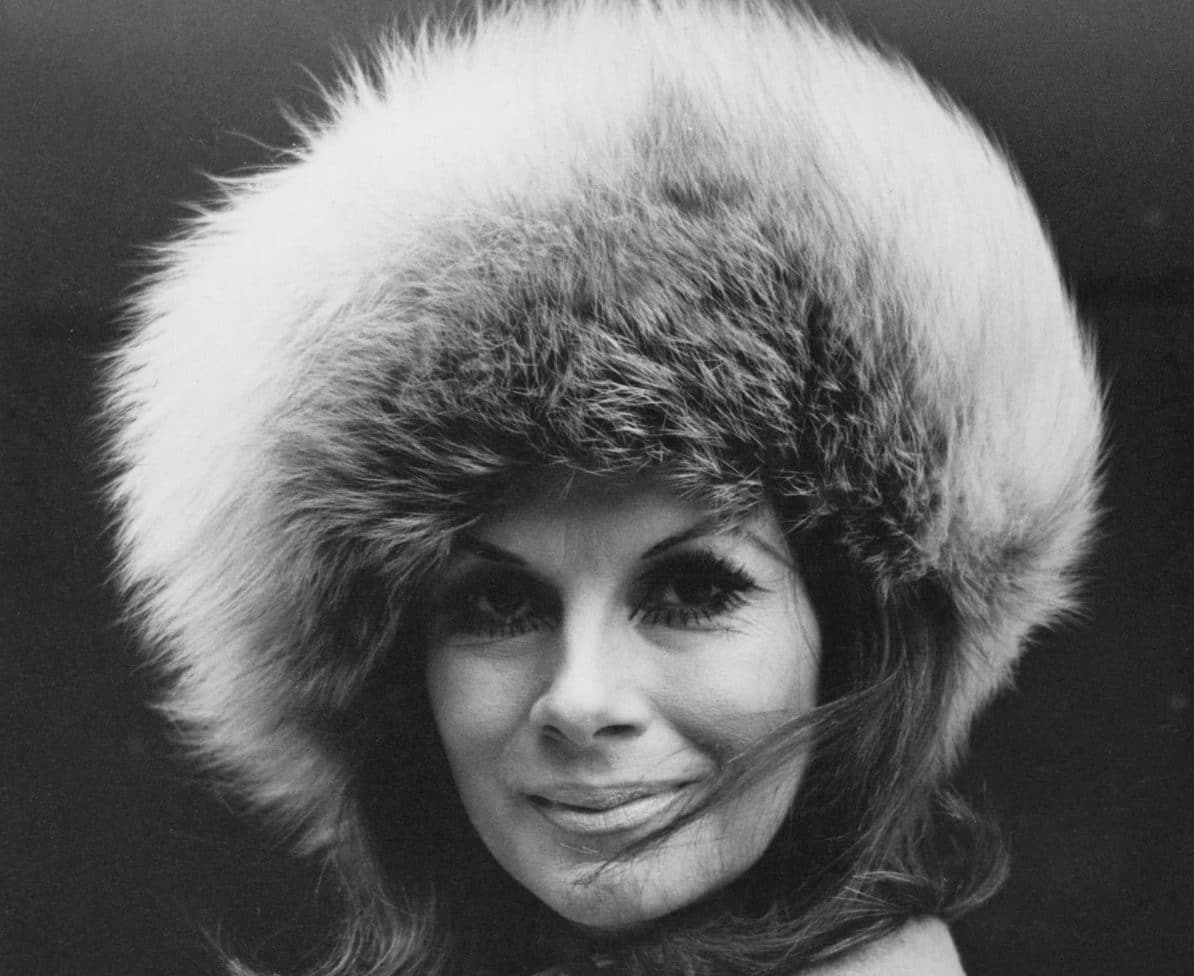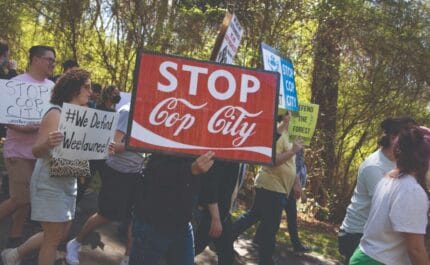April Ashley 1935–2021
Peter Tatchell remembers the model, dancer and trans trailblazer

April Ashley in February 1970, the year her landmark divorce case was decided. Photo: Jones / Daily Express / Getty Images
27th December 2021 (Taken from: #45)
April Ashley, who died on 27th December aged 86, had a remarkable life. Born in Liverpool in 1935, in 1960 Ashley became only the second Briton ever to undergo male-to-female gender reassignment surgery. Registering officially as a woman, she became a socialite and a successful model, appearing in British Vogue. But in 1961 a friend sold Ashley’s secret to the Sunday People for £5, after which her modelling career abruptly ended.
Following the exposé Ashley became a social pariah, although she continued to make headlines for her relationships, which included alleged affairs with Omar Sharif, Peter O’Toole and Michael Hutchence. She married aristocrat Arthur Cameron in 1963, but the union was not a happy one. Cameron, who knew about Ashley’s history, petitioned for the marriage to be annulled, which it was in 1970 on the basis that it had been between two men. The case would become a major milestone in British law.
Following a heart attack in 1975, Ashley retreated first to Hay-on-Wye and later to the west coast of the US. She returned to the UK in 2005, when she was legally recognised as female following the Gender Recognition Act, became a prominent activist and was made an MBE for services to transgender equality in 2012. Human rights advocate Peter Tatchell remembers his pioneering friend.
“At the start of the 1960s April Ashley was regarded as an epitome of female beauty and poise. She was a Vogue model, snapped by the world’s most famous photographers and a female icon. Of course, no one knew back then that she was trans. The fact that April had been so successful showed just how natural being trans was for her. She didn’t have to pretend or cultivate special mannerisms. April just was who she was, she was herself, and that authentic femaleness as she expressed it, was embraced not only by the fashion world, but also by a lot of people across society. She was sought after by many a man who appreciated female beauty. Then overnight her career was over, when she was outed by a newspaper as trans. April was devastated. It was an enormous mental and emotional blow. It’s extraordinary to think that someone who was so loved and appreciated could suddenly go from being welcome everywhere to being shunned and reviled. It just shows how toxic the atmosphere around trans issues was then, and indeed still is now.
“April retreated into her private life, but her break up with Arthur Cameron brought her back into the spotlight. He sought to annul their marriage. However, the Marriage Act did not specify that marriage partners had to be male or female: it simply said ‘two persons’. Nevertheless, in 1970 the judge annulled the marriage on the basis that she was born a man. The case prompted the Nullity of Marriage Act 1971 which, for the first time, specified in law that marriage had to be between a man and a woman – the first explicit ban on same-sex marriage. It lasted until 2013, when the ban was repealed and marriage equality introduced.
“I first met Ashley in the street in the early 1970s. It was just a very brief encounter. I was wearing a Gay Liberation Front badge and she smiled and I thought, ‘That face looks familiar, I wonder if…’ And I went over to her and asked, and sure enough it was April Ashley herself. She was still very beautiful and defiant despite everything that had happened by then. She was determined to carry on.
“When she returned to the UK in 2005 she became more involved in trans campaigning and indeed in wider LGBT+ campaigning, so our paths crossed quite a few times in TV studios and at campaign meetings and various public events organised by Pride committees across the country. She was a trailblazer. She’d stuck to her guns. Those are admirable qualities and I was inspired and motivated by the courageous stand that she took.
“In 2005 trans issues were not as toxic as they are today. April saw an opportunity to retell her story to a new generation who knew nothing about what she’d been through and most people embraced it. They saw this as an act of great courage. Yet the current atmosphere around trans issues has become so toxic, with the level of transphobia astronomically worse than it was 15 years ago. My view is that biological sex and gender identity are two different things. They are not the same. But they are both equally valid and I don’t see why there should be a competition, rivalry or conflict between trans rights and women’s rights. My foundation is a human rights organisation, and we know that trans people are some of the most abused and victimised in our society today. Trans rights are human rights. Therefore we have a special responsibility to stand up for trans people, to show our solidarity and to challenge the people who are trying to wreck their lives, the bigots who want to demonise the trans community.
April was calm, affable and likeable. It was hard for people to feel ill towards her
“I think what’s holding things back is that a lot of trans people are not prepared to debate with people who they see as anti-trans or transphobic, but I believe you’ve got to debate and debunk them, to show why they’re wrong, and to persuade the public that social change on trans rights is important and necessary. In the ’70s, ’80s and ’90s, I went on every available TV and radio programme to challenge homophobia. I often had to debate truly vile people, but I knew that although I probably wouldn’t persuade them, I could – by presenting rational, ethical arguments backed up with research and evidence – persuade the public listening to or viewing those programmes. And public opinion did change on sexual orientation issues. I have no doubt public opinion will eventually be on the side of the trans community.
“When April came back into public life more than a decade ago she felt part of a wider community in a way that she never had back in the 1950s and 60s. So that gave her the confidence to speak out and to campaign on trans rights. She did this partly by just telling her own story, which was important in itself, but also by debunking the arguments of trans critics. The way she held herself and made her case commanded respect. April was calm, affable and likeable. It was hard for people to feel ill towards her. She had impeccable manners, great poise and a super elegant dress sense. Indeed, I’d say she dressed like a queen. There was something almost regal about her. Her dress style and her manner helped disarm the critics. She never, ever lost her cool, despite bad things being said to her. Sometimes she’d put people down a bit, but all the while remaining ultra courteous. I think that won over a lot of people. I remember doing an event in Liverpool for Homotopia, where she completely commanded the stage. She had people in awe as she told her story and made her very simple, very eloquent case for trans rights.
“She was rather chuffed [when she was awarded an MBE] – she thought, ‘After all I’ve been through, at last I’ve got this recognition.’ But of course for her the most important recognition was just in the way that people treated her face-to-face, day-to-day, and the way the wider trans community was treated.
“Some of the people who turned against her after she was outed as trans did so because they felt betrayed, that she had posed as something she wasn’t. But that’s a misreading. April was expressing her true identity as a trans woman. So there was no deception, in fact there was great candour and honesty and bravery. Trans people are being their true selves – and how can you say no to someone who is being true to themself?”
Slow Journalism in your inbox, plus infographics, offers and more: sign up for the free DG newsletter. Sign me up
Thanks for signing up.








